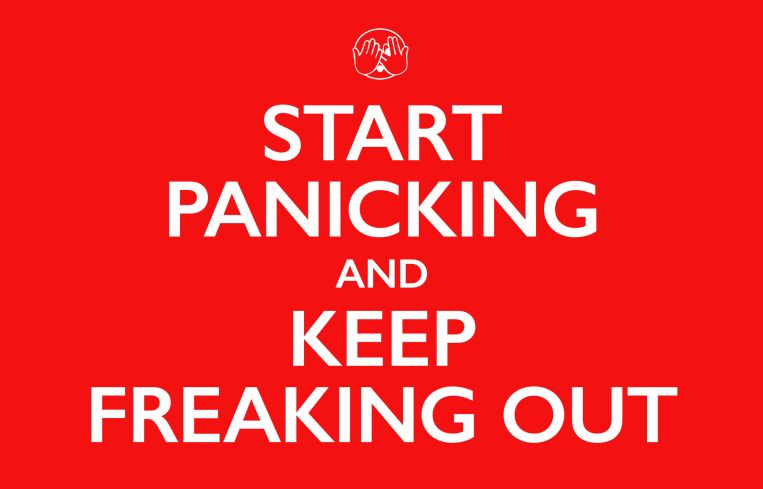Apollo Economist Predicts a Recession by Summer, With CRE Market Feeling the Heat
Apollo projects a recession could happen by summer due to supply chain challenges from China tariffs
By Andrew Coen May 2, 2025 3:36 pm
reprints
Buyers, beware.
A recession may be looming sooner than later thanks to President Donald Trump’s tariff policies, according to Apollo Global Management chief economist Torsten Slok — and the commercial real estate industry is bracing for the aftershocks.
During an April 28 presentation, Slok said that a recession could happen by summer following the expected supply chain headwinds that result from tariffs Trump is imposing on China.
Slok predicts that container ship traffic to U.S. ports from China will come to a halt by mid-May, followed by a stop in trucking demand that will lead to empty shelves in stores and lower sales for companies by the end of the month. He also expects layoffs in the trucking and retail industries to commence by early June, with the full brunt of the recession taking effect sometime this summer.
Other economic experts also predict tough times ahead.
“A recession would likely place downward pressure on commercial real estate by impinging on demand for space, as businesses hesitate in acting on their occupancy needs amid economic uncertainty,” said Sam Chandan, director of New York University’s Chen Institute for Global Real Estate Finance. “While some investors may and should view any cyclical price declines as opportunities, the broader market is often characterized by tighter underwriting standards during downturns, which can limit access to capital and slow transaction activity.”
Jeffrey Gural, chairman of GFP Real Estate, said even the possibility of a recession has hurt his portfolio, noting he lost a 180,000-square-foot lease from a Turkish company at an office property in upstate New York due to the economic uncertainty in the air. Gural said nonprofits that rely on federal funding have also been either exiting leases or cutting space.
Gural, who supports Trump on issues like border security and reducing the size of the federal government, said the tariff policy and overall market uncertainty that has resulted puts the CRE industry in a difficult position.
“Let’s hope he changes course,” Gural said. “China will never back down to Trump.”
Trump announced wide-scale global tariffs on April 2 in what he billed as Liberation Day, which uprooted marketsin the early part of the month. He proceeded to pause higher targeted tariffs on most countries for 90 days on April 9, but the policy shift did not apply to China, which has been locked in a trade war with the U.S. over the last month.
Chandan said the U.S. economy faces “elevated risk of recession” stemming from a “confluence of unusual shocks, largely self-inflicted,” with declining consumer and business sentiment signaling “mounting uncertainty.” He added that the Federal Reserve is constrained in terms of responding to a potential recession because of inflationary pressures, which could result in increased headwinds for CRE deal flow.
Former Treasury Secretary Lawrence Summers, who in March said odds of a recession were “close to 50-50,” blasted Trump’s economic policies on Wednesday in a post on X, two days after the Apollo report calling the start of Trump’s second term “disastrous” for the U.S. economy. Summers said the first 100 days of Trump four years after he lost re-election in 2020 has “probably been the least successful first hundred days of a presidency on the economy in the last century.”
Lisa Pendergast, president and CEO of the Commercial Real Estate Finance Council (CREFC), said her 52-member board of CRE finance executives is largely split on whether there will be a recession. She said one of the major concerns for the CRE finance industry is a looming long-term stagflation environment.
“You could see an environment where cash flow coming off of real estate is declining at the same time when you’re seeing no relief from a benchmark rate perspective and a mortgage rate perspective,” Pendergast said. “It could be a potential double whammy.”
Unease about the economy among CRE finance professionals was evident in the CREFC First Quarter 2025 Board of Governors Sentiment Index showing 80 percent of the 52 respondents expect worse economic conditions over the next 12 months compared with just 12 percent in the fourth quarter. The survey was conducted from March 31 to April 7 and coincided with President Trump’s tariff rollout.
Moody’s is not projecting a recession through the end of the year, as of now. But the credit rating and analytics firm announced this week that risks” remain elevated” with much of the outlook hinging on how tariff and trade policy plays out in the coming months.
Dante DeAntonio, senior director of economic research at Moody’s Analytics, said that while there are expectations that trade tensions will “gradually resolve,” the U.S. will be weakened by the process with growth expected to slow through the end of the year and the unemployment rate expected to rise to about 5 percent by early 2026. He said despite the “likelihood” of rising inflation resulting from higher tariffs, Moody’s is forecasting that the Fed will cut interest rates three times in 2025 due to slower economic growth.
“A weakened economy, even one that avoids an outright recession, still has negative implications for commercial real estate near-term,” DeAntonio said. “But lower interest rates and a stronger economy in 2026 would help turn the tide.”
Andrew Coen can be reached at acoen@commercialobserver.com



